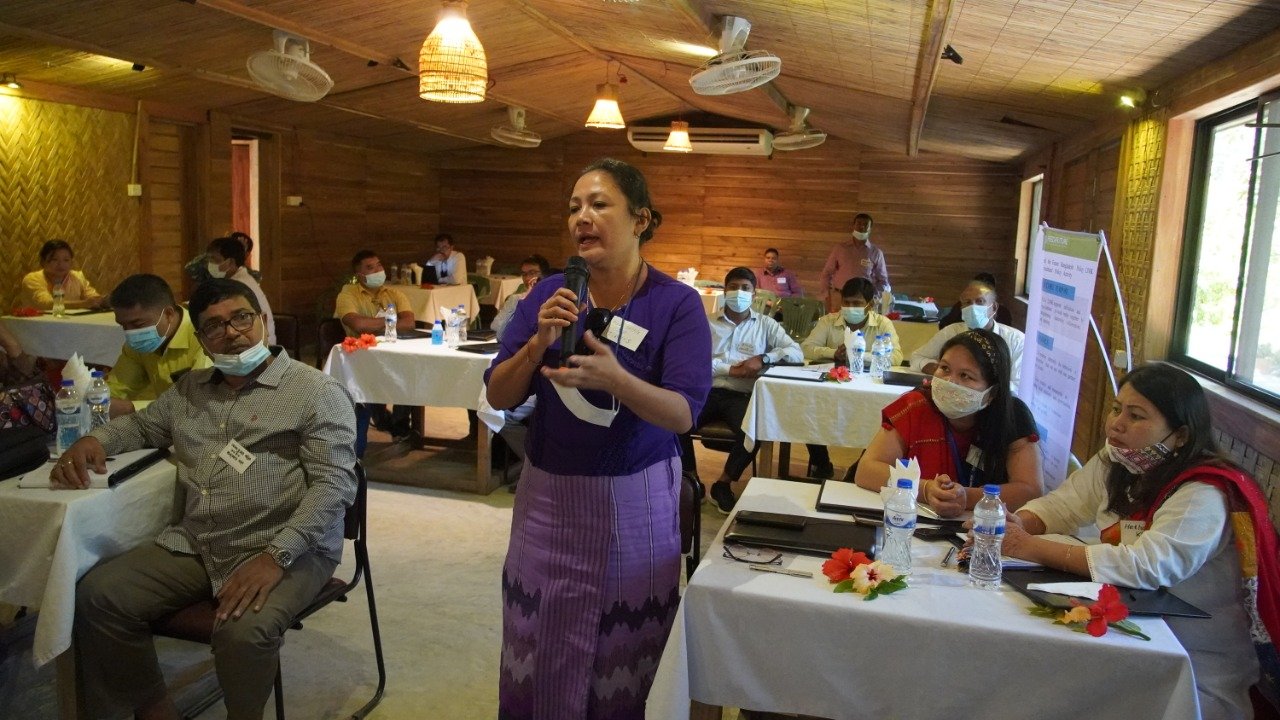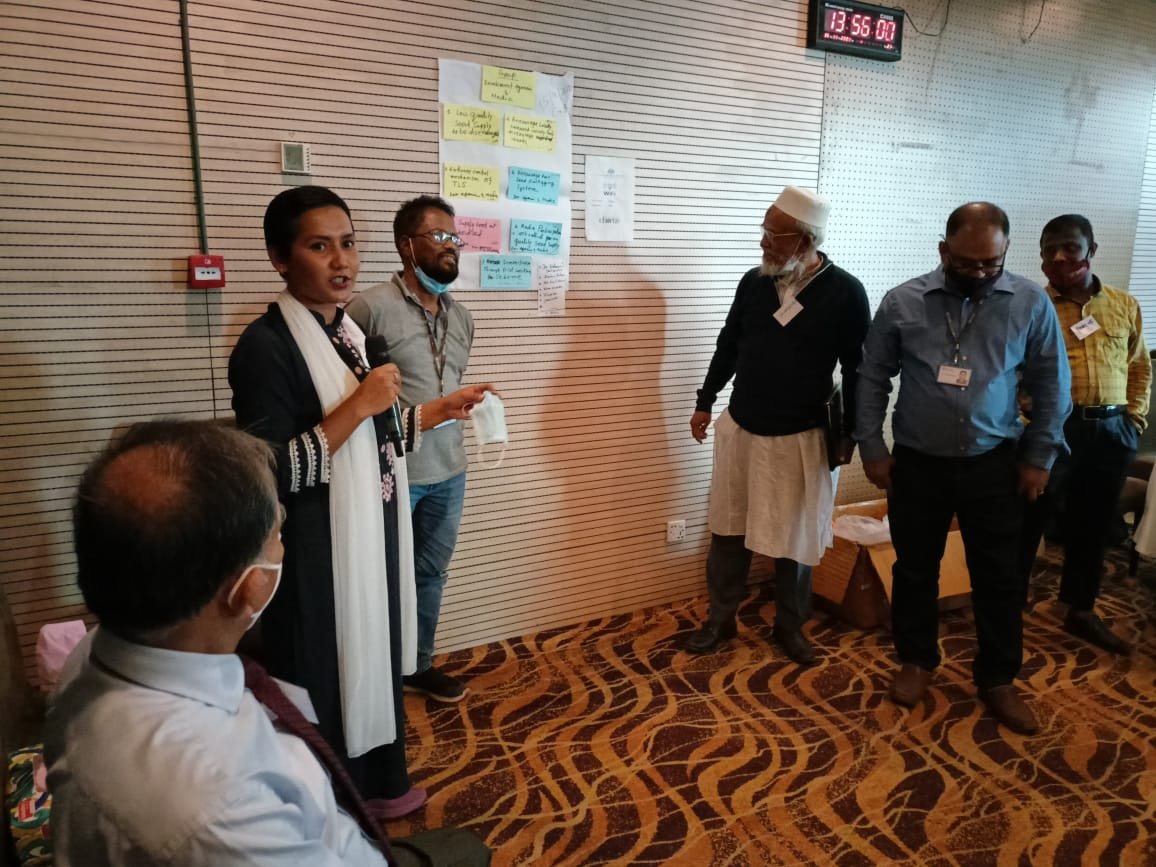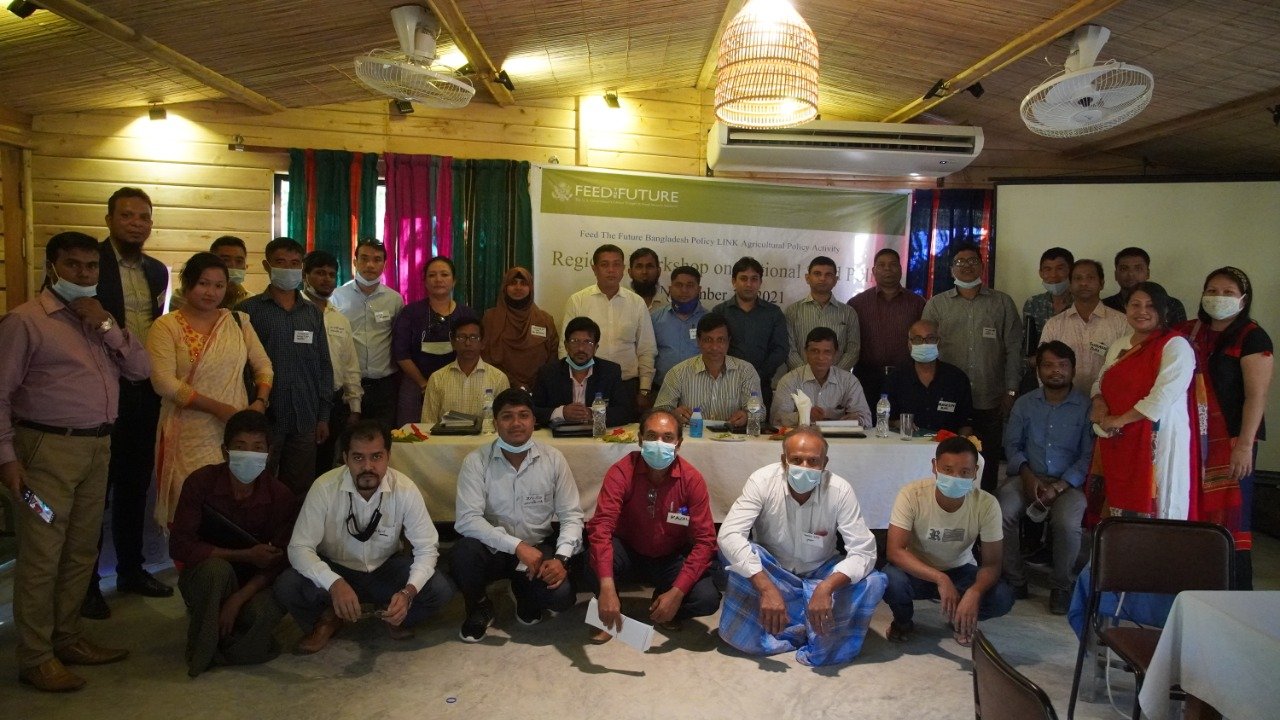Seeding Sustainable Agricultural Solutions in Bangladesh
Images: Policy LINK
On November 15 and 17, 2021, the Feed the Future Bangladesh Policy LINK Agricultural Policy Activity convened consecutive workshops with a total of 67 public- and private-sector representatives on national seed policy in Cox’s Bazar, the southeastern coastal district hosting a displaced Rohingya population, and Bandarban, the hilly southeastern district that makes up one-third of the Chittagong Hill Tracts.
The lack of regulatory measures and a high saturation of commercial actors in the seed market have led to several issues plaguing farmers’ productive capacity.
Throughout both sessions, participants discussed training on seed collection and preservation technologies for farmers and seed producers, a specialized germplasm center and seed banks for conserving seed varieties indigenous to the Chittagong Hill Tracts, and registration of seed varieties developed by innovative local farmers.
For generations, farmers across Bangladesh were known to uphold a rich tradition of seed saving and exchanging practices. They used to be the gatekeepers – responsible for producing and preserving various indigenous crop varieties. As the market landscape changed over time, many of these “informal seed systems” have been gradually overshadowed by an increased influx of privately produced and imported seeds. Informal seed systems are essential for improving access to locally adapted crops and ensuring sustainable production for resource-poor farmers. Researchers have estimated that, today, more than 90 percent of vegetable and rice seeds in Bangladesh are being produced and supplied through private channels.
The lack of regulatory measures and a high saturation of commercial actors in the seed market have led to several issues plaguing farmers’ productive capacity. Key among them are the overwhelming presence of adulterated seeds and inadequate supply of indigenous seed varieties, the high cost to farmers for purchasing seeds through private companies, and inadequate attention to strengthening capacity of women farmers.
Both events were chaired by Dr. Khandakar Mahfuzul Haque, District Seed Certification Officer for Bandarban and Cox’s Bazar, who, in his closing remarks, stated that Government of Bangladesh alone cannot overcome the challenges and emphasized public-private collaboration as an impactful mechanism for finding sustainable solutions.



